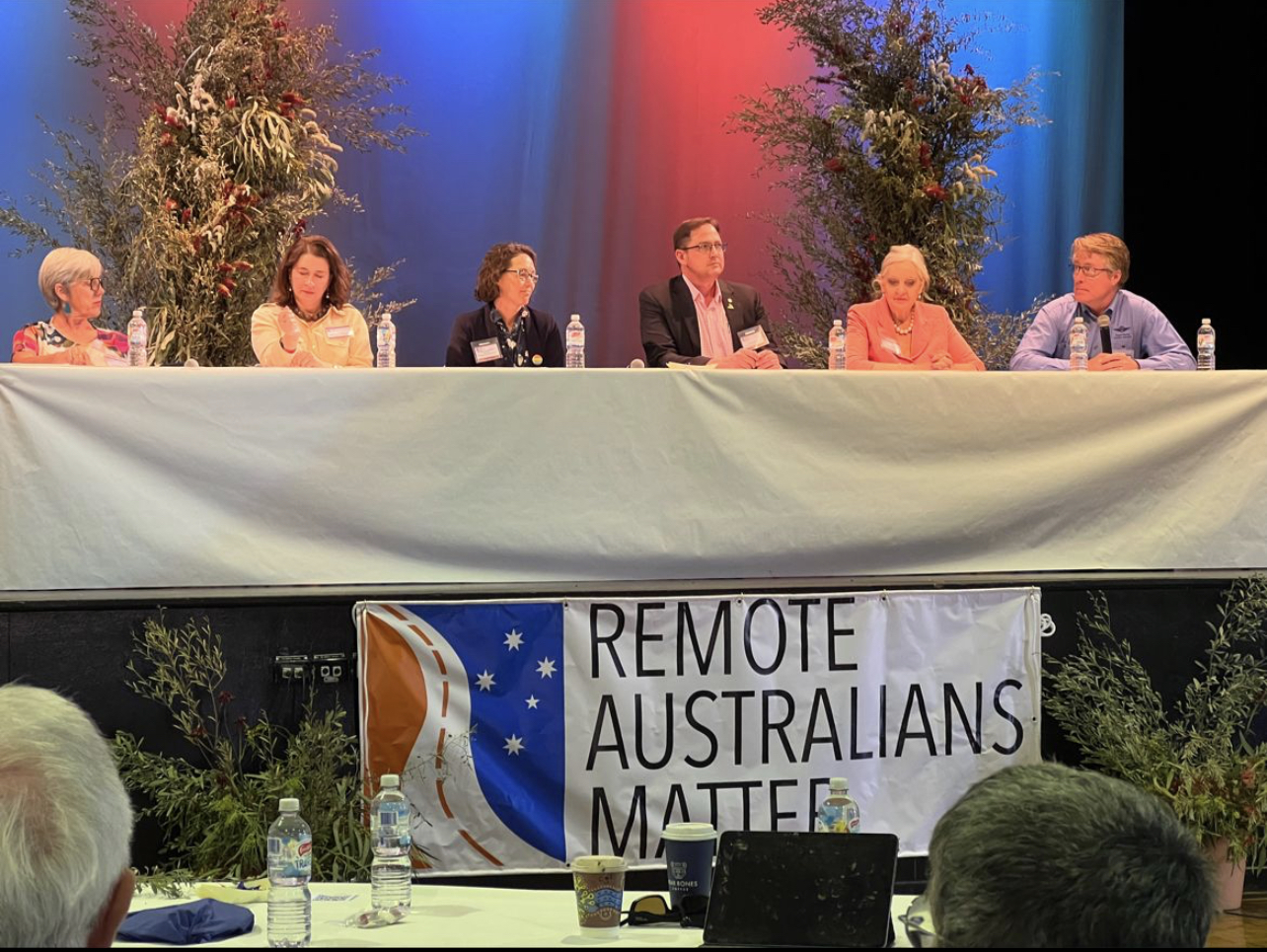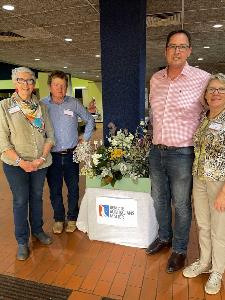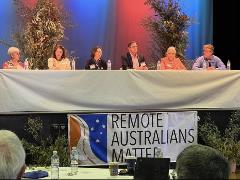Journalists wanting to speak to an ACRRM spokesperson are invited to contact Petrina Smith on 0414 820 847 or email.

The inaugural Remote Australians Matter (RAM) conference this week has been hailed an outstanding success, raising awareness, and generating action on what quality healthcare should look like for people outside the urban and regional footprint.
Australian College of Rural and Remote Medicine (ACRRM) President Dr Dan Halliday and board member Dr David Rimmer attended the event, held in the outback hub of Charleville.
Dr Halliday congratulates the organisers, particularly Remote Australians Matter Chair and former ACRRM board member Annabelle Brayley, and colleagues who also sit on the ACRRM Community Reference Group, on gathering more than 130 stakeholders from across the nation
“There were representatives from government, healthcare services, Aboriginal and Torres Strait Islander groups, and industry bodies, who came together to create a real energy for change,” Dr Halliday says.
“The College looks forward to continuing to work with RAM to progress initiatives which stemmed from the conference, including the newly created Charleville Charter which focuses on five key areas: community involvement and leadership; universal health obligation; health workforce; place-based community primary healthcare models; and funding and resourcing.”
Ms Brayley says the conference was pulled together to promote the formation of innovative, equitable, appropriate, well-funded and sustainable place-based models of primary healthcare for remote Australians.
“By bringing remote community members together to connect with government and healthcare stakeholders, we have created a space for community to play an active role in designing and developing the models of care that their communities need,” Ms Brayley says.
“It’s not about coming up with one model that fits all.
“Just as the needs of residents of different metro cities are varied, because of their social, cultural, geographic and demographic variants, remote Australians needs are as varied as they are distant from each other.
“It’s about identifying each community’s particular needs and developing solutions that meet them.
“It’s about equitable access to universal health coverage.
“They need access to a variety of healthcare practitioners, including doctors, who live and work in their community and understand their individual and collective healthcare needs.
“To do that, we need more doctors choosing general practice, and ultimately rural generalism, and we need them preferencing to work in remote and very remote communities.
“The RAM campaign will continue to drive action in these areas.”
Dr Halliday says the College is committed to its vision of having the right doctors in the right places with the right skills, providing rural and remote people with excellent healthcare.
“Initiatives such as the RAM conference contribute to meeting that goal, and we will continue to work with organisers and supporters to drive progress and change.”
ENDS

Picture 1 (L to R): RAM Ltd Chair Annabelle Brayley, RAM Ltd Director Gus Whyte, ACRRM President Dr Dan Halliday and RAM Ltd Secretary July Treloar
Picture 2 (panel shot, L to R): RAM community representative Nikki Thompson, Senator Susan McDonald, Dr Sara Renwick-Lau, ACRRM President Dan Halliday, Director of James Cook University Centre for Rural and Remote Health Prof Sabina Knight, and Executive Director Royal Flying Doctors Service Australia Frank Quinlan
About Remote Australians Matter: www.remoteaustraliansmatter.com


